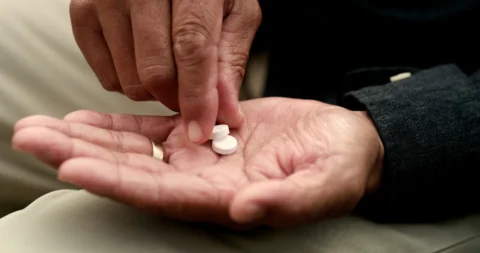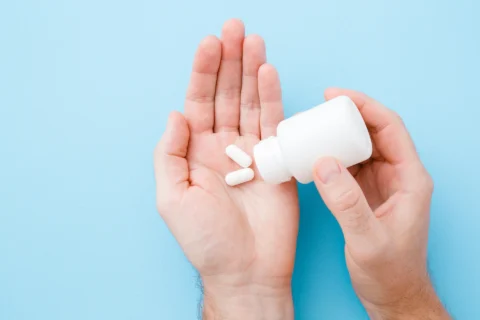Erectile dysfunction can be embarrassing and frustrating for men of any age. But for older men, it poses additional challenges.
Hormonal changes and conditions like venous leakage become increasingly common with age – and can exacerbate erectile difficulties. Clomiphene citrate is sometimes used to treat erectile dysfunction in older men.
But how does it work? And is it effective for venous leakage specifically? This article takes an in-depth look.
What Is Clomiphene Citrate and How Does It Work?
Clomiphene citrate (also known as Clomid or Serophene) is a selective estrogen receptor modulator (SERM). It works by binding to estrogen receptors in the hypothalamus, blocking the actions of estrogen.
This stimulates the release of luteinizing hormone (LH) and follicle-stimulating hormone (FSH) from the pituitary gland. LH then acts on the Leydig cells in the testes to increase testosterone production.
So in summary:
- Clomiphene citrate blocks estrogen at the hypothalamus
- This triggers increased LH and FSH release
- LH stimulates testosterone production in the testes
The result is boosted testosterone levels and improved testosterone/estrogen balance.
This mechanism makes clomiphene citrate useful for treating testosterone deficiency (hypogonadism). Many older men have low testosterone, which can contribute to erectile dysfunction.
What Is Venous Leakage and What Causes It in Older Men?

Venous leakage refers to the inability of veins in the penis to properly retain blood during an erection. This causes blood to leak out and prevents maintaining an erection.
Several factors make venous leakage more likely in older men:
- Endothelial dysfunction – The endothelium (inner lining) of blood vessels can become dysfunctional with age. This impairs the ability of veins to contract and trap blood.
- Conditions like diabetes – Older men have a higher risk of diseases that damage blood vessels and nerves involved in erections.
- Anatomical changes – The makeup of penile tissue may change in a way that allows more venous leakage.
- Medications – Older men take more medications, some of which (like diuretics) may exacerbate venous leakage.
- Hormonal changes – Age-related testosterone decline contributes to erectile difficulties.
While venous leakage can occur at any age, it clearly becomes more prevalent in older men due to these cumulative changes.
The Link Between Hormonal Imbalance and Venous Leakage
Since low testosterone is common in older men, how does this interact with venous leakage? There are a few ways hormonal imbalance could contribute:
- Inadequate signals for blood flow – Testosterone promotes nitric oxide production which dilates blood vessels for erections. Lower testosterone may impair these signals.
- Decreased elasticity and compliance – Androgen deficiency could alter the anatomical properties of penile tissue, allowing more venous leakage.
- Weakened closesure mechanism – Hormonal changes may impair the veno-occlusive mechanism that traps blood in the penis.
- Impact on risk factors – Low testosterone promotes several conditions (like endothelial dysfunction and diabetes) that increase venous leakage risk.
While more research is needed, the current evidence suggests that age-related testosterone decline facilitates venous leakage development and progression. Boosting testosterone levels may help strengthen erections and control leakage.
Can Clomiphene Citrate Treat Venous Leakage in Older Men?
Short answer: No, but there’s a possibility!
Clomiphene citrate has been the subject of research for treating erectile dysfunction (ED) in men with hypogonadism. A handful of studies have examined clomiphene citrate for erectile dysfunction, with mixed results:
- A double-blind placebo-controlled study revealed that clomiphene citrate significantly improved erectile function scores in hypogonadal men suffering from ED.
- Two major predictors of a positive biochemical response to clomiphene citrate are younger age and the absence of venous leakage, as detailed in this study.
- The same study noted that men with venous leakage, a known cause of ED, might not respond as effectively to clomiphene citrate treatment.
Current research on clomiphene citrate mainly focuses on its effectiveness in treating erectile dysfunction (ED) in hypogonadal men, suggesting it may be useful for those with low testosterone levels. ED can sometimes result from venous leakage.
While specific studies on older men with venous leakage are limited, the potential link between clomiphene citrate’s effectiveness in ED and its ability to manage conditions like venous leakage is promising and warrants further exploration.
Is Clomiphene Citrate Effective and Safe for Treating Low Testosterone in Older Men with Venous Leakage?
Clomiphene citrate is used to manage male infertility and stimulate testosterone production, particularly in hypogonadal men, potentially aiding in erectile dysfunction.
Venous leakage, a cause of erectile dysfunction, involves incomplete filling of the corpora cavernosa in the penis. In some cases, older men with venous leakage and low testosterone levels might consider penile implants if other treatments fail.
Clomiphene citrate could potentially increase testosterone levels, but its specific effectiveness and safety for treating venous leakage are not established.
Further research is needed to understand its implications in this context. Therefore, the suitability of clomiphene citrate for older men with both venous leakage and low testosterone remains uncertain without more specific information.
Key Takeaways on Clomiphene Citrate for Older Men

To better understand the use of clomiphene citrate for venous leakage in older men, consider these critical insights:
- Venous leakage is a common cause of erectile dysfunction, especially in older men.
- Clomiphene citrate may increase testosterone levels, but its effectiveness for venous leakage is not fully established.
- Adjusting hormonal levels with clomiphene citrate could be crucial, as hormonal imbalances are often linked with ED issues.
- Given the limited evidence, weighing the potential benefits and risks of using clomiphene citrate is important.
For older men experiencing venous leakage, take the time to discuss all treatment options with a healthcare provider.
While clomiphene citrate offers a theoretical benefit, its role in this particular situation remains unconfirmed. Carefully consider both the potential advantages and risks.
With increased awareness and developing research, there is hope for better solutions ahead. Work closely with your urologist or men’s health specialist to find the optimal individualized treatment plan. Patience and perseverance are key – your sexual health and well-being are worth it.







